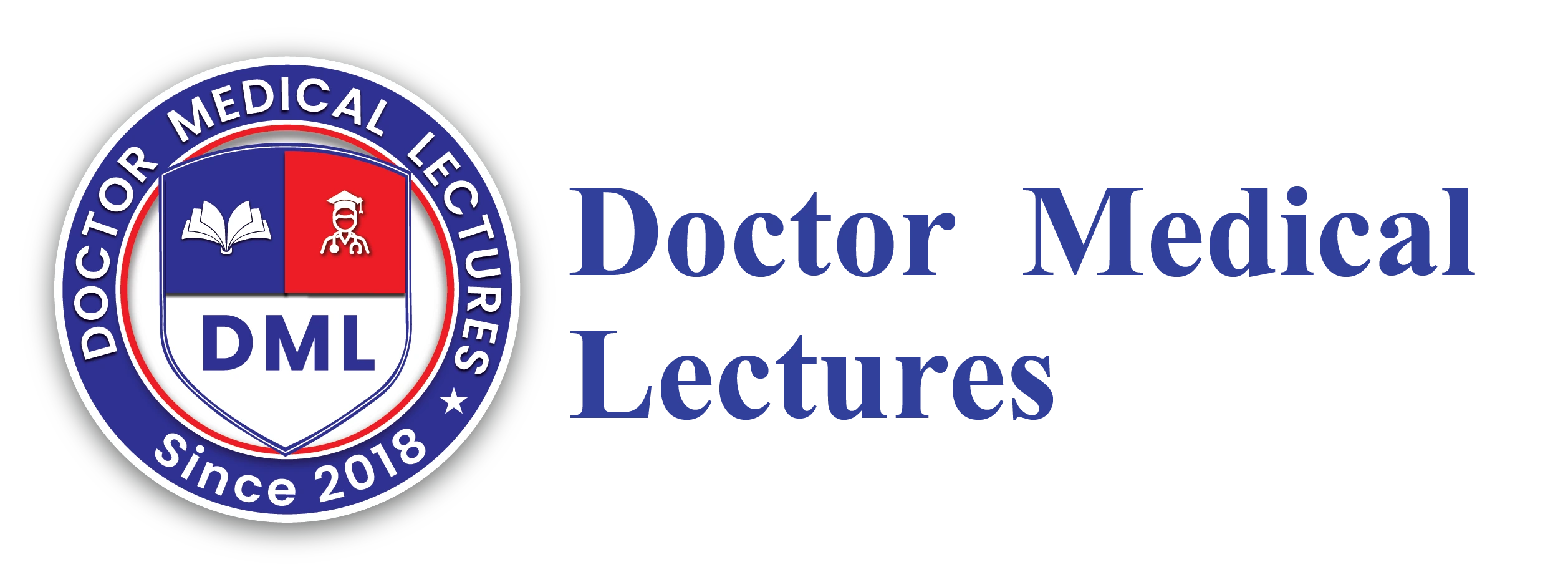Introduction
The Professional and Linguistic Assessments Board Part one examination (PLAB 1) constitutes the initial screening mechanism for internationally qualified medical graduates seeking full registration with the General Medical Council of the United Kingdom. Its core mandate is to validate that candidates command a breadth of medical knowledge. The faculty to transpose that knowledge into plausible clinical contexts, and the analytical aptitude characteristic of a newly graduated practitioner about to embark upon. The Foundation Year of the National Health Service.

In contrast to conventional examination formats that privilege rote memorisation PLAB 1 centres the evaluation on the practical and cognitive transfer of information across diverse clinical scenarios. Thereby demanding a disciplined and thorough engagement with the decade-specific syllabus. Thoroughly studying the syllabus not only helps candidates construct study schedules focused on the most clinically relevant material but also develops. The subtle decision-making and contextual responsiveness they must demonstrate in full clinical practice.
An Overview of the PLAB 1 Examination
The PLAB 1 examination comprises 180 multiple choice items, each mandating the selection of the most appropriate response from a quintet of possible answers. Moreover, the cognitive burden aligns with the level of skills anticipated from doctors entering the first year of UK Foundation training. In addition, the test’s principal objective is to establish that graduates of overseas medical schools possess. The clinical reasoning requisite for the management of authentic patient scenarios commonly encountered within NHS settings. The examination blueprint extends across a broad curriculum, including the mandatory subspecialties of adult medicine, paediatrics, surgery, obstetrics, psychiatry, and the core domains of medical ethics.
General Medicine and Its Core Role in the PLAB 1 Syllabus
General Medicine carries the heaviest weighting in the PLAB 1 syllabus and mirrors the routine demands typically placed upon Foundation Year doctors. All core disciplines are covered respiratory, cardiovascular, renal, infectious, and endocrine medicine. While the tests require performance that exceeds mere identification of signs and symptoms. Candidates must progress through the processes of investigation and must articulate, in an organised manner, an entire management strategy.
Furthermore, the exam explicitly incorporates acute scenarios to test candidates’ situational judgment, demonstrating that comprehensive, evidence-based practice underpins the assessment. These scenarios include myocardial ischemia, pulmonary thromboembolism, and diabetic ketoacidosis. Hence familiarity with the latest, guideline-anchored standards of care is the sine qua non of an acceptable performance.
Pediatric Considerations in PLAB-1
The PLAB 1 blueprint incorporates pediatrics as an essential cross-sectional theme, and therefore, it obligates candidates to protect and optimize the health of paediatric populations. Furthermore, examinees are subject to items requiring command of key concepts, including the physiology of the neonatal transition, normal growth and developmental trajectories through childhood, the national immunisation timetable, and a defined list of common paediatric disorders. In addition, particular emphasis is placed on critical presentations, with items on acute bacterial meningitis, bronchiolitis, and sepsis being mandatory content. Consequently, mastery of both foundational knowledge and acute clinical scenarios is essential for exam success.
The standards further stipulate the prompt recognition of developmental milestones. A grasp of appropriate dietary practices for children, and the supervised management of chronic health problems. Taken as a whole, these curricular requirements underpin successful entry to the NHS with the readiness to provide safe, effective, and patient centred paediatric interventions.
Obstetrics and Gynecology in the PLAB 1 Examination Syllabus
Obstetrics and gynecology represent a salient focus within the PLAB 1 examination syllabus. Candidates are required to articulate a detailed understanding of the uncomplicated course of pregnancy. The principles of standard antenatal screening, and the physiologic processes of labour, when these processes manifest physiologically upright or deviate into pathology. Simultaneously. The examination expects clinicians to detect and manage, expediently and effectively, critical situations such as ectopic gestation, severe pre eclampsia, and significant postpartum bleeding.
Complementary to these themes, the curriculum encompasses issue oriented gynecology, mandating knowledge of menstrual disturbances. Modern contraceptive techniques, the investigation and management of subfertility, and infection-specific pathologies of the female reproductive apparatus. Accordingly, the syllabus compels the aspirant observer to interrogate and to interpret emergent obstetric and gynecologic cases, to initiate immediate and reasoned interventions, and to institute adequate referral pathways. Through this foundation, the examination underwrites the capacity of the future physician to administer holistic medical attention to women commencing at puberty and extending into advanced age.
Psychiatry and Mental Health
Psychiatry and mental health content is intentionally integrated into the PLAB 1 syllabus. Examinees encounter vignettes covering the most prevalent affective, anxiety, psychotic, and substance-related disorders. Instruction emphasises key competencies, including the principles of safeguarding, conducted structured risk assessments, and the identification of acute psychiatric crises. Exemplified by imminent suicidality and the sudden development of psychotic symptomatology. The inclusion of these topics in the test certification mandates that overseas medical graduates licensed by the GMC can undertake comprehensive clinical practice, in which psychological health is articulated as equivalent to somatic health and treated on the same evaluative and therapeutic axis.
Ethics and Professionalism
The transmitted topics assign comprehensive weight to the enhancement of professional conduct and medical ethics, embedding stems. That compel candidates to secure informed consent, preserve confidentiality, honour pluralistic cultural values, and shield vulnerable populations. Practitioners are required to exhibit mastery of the DIF paradigm, guaranteeing that the reconciliation of each patient’s interests remains categorical and that neither institutional exigencies nor proprietary incentives predominate the exercise of responsible clinical judgment.
Candidates demonstrate competence most effectively when their case management approaches align with NHS core values. When precedent cases, through systematic ethical evaluation, confirm adherence to the moral and professional standards expected in clinical practice.
Emergency Medicine
Performance in the emergency medicine module of the PLAB 1 evaluation is rigorous and unforgiving. Candidates must not only recognise but stabilise life-threatening conditions, including but not restricted to cardiac arrest, severe sepsis, anaphylaxis, and acute traumatic syndromes. The exam assesses candidates on their ability to demonstrate procedural and cognitive judgment promptly, articulate and sequence. The therapeutic priorities of the primary survey, and, when necessary, perform the required interventions immediately, advancing through both basic and advanced life support algorithms. Meeting these criteria serves as a key benchmark for determining. Whether candidates are ready to manage seriously ill patients as they enter the NHS.
Clinical Pharmacology
The barring of the clinical pharmacology segment pivots upon the applicant’s capacity for safe and rational prescribing. Evaluands must evince detailed knowledge of the prominent therapeutic classes, including but not confined to antibiotics. Anticoagulants, antihy pertensives , and insulin, and must elaborate upon. Their respective adverse effect spectra, salient interactions, and both absolute and relative contraindications. Furthermore, candidates must demonstrate skill in adjusting dosages for neonates, the elderly, and patients with significant renal or hepatic impairment. Since safe prescribing is a core responsibility of a foundation-grade doctor, the PLAB 1 examination assigns substantial weight to mastery of this knowledge area.
Communication Skills as a Core Clinical Competency
Within the NHS, the PLAB 1 examinations require candidates to apply evidence-based practice in all procedures. Candidates must integrate current clinical guidelines with peer-reviewed evidence and apply this knowledge to scenarios that realistically replicate day-to day patient management. The exam emphasizes stepwise clinical inquiry and removes reliance on traditional heuristic biases.

Mastery of the conversion and operational use of extant directives is, therefore, both an integrating and a demonstrative criterion of success. The criterion cannot be satisfied heuristically and is both indispensable to the examination and to the continuous provision of safe, high-standard clinical practice in the UK. Communication Skills PLAB 1 professionally codifies communication as a core clinical competency. The domain receives, in the same measure as diagnostic or therapeutic reasoning, the same rigour of scripting, simulation, and assessment. Candidates are required to convey the management plan, to seek inter professional consensus, and to secure patient concordance, with equal precision.
Guidelines and the Context of PLAB 1
The PLAB 1 assessment remains essentially governed by the policy architecture and procedural standards of the National Health Service. In consequence, overseas applicants must reconfigure their clinical reasoning to fulfil UK parameters. The exam awards full credit only for responses that follow the recommendations of NICE and other authoritative bodies. Such a comprehensive concordance preserves uniform clinical standards and bolsters patient safety system wide.
Conclusion
The PLAB 1 syllabus constitutes a deliberately expansive structure, specifically designed to verify that internationally trained practitioners hold. The discrete skills necessary to commence supervised service within the National Health Service. Notably, the explicit domains identified embrace internal medicine, surgical foundations, paediatric medicine, obstetric practice, comprehensive psychiatry, emergency medicine. The interface of law with medical practice, and public health. Furthermore, the syllabus instructs candidates to prioritize patient protection, exercise clinical discernment, and communicate effectively and culturally competently. Aligning with legally prescribed professional expectations. In addition, it prepares candidates for real-world clinical scenarios, thereby enhancing both their competence and the safety of their patients.
Actively aligning didactic content with representative clinical scenarios, guided by rigorously appraised guidelines, provides the most efficient route to success in the assessment. Attainment of the prescribed minimum criterion, hence. Confirms the breadth of clinical proficiencies and certifies the candidate’s preparedness to provide safe and effective care. As prescribed by statutory and institutional regulations governing health services in the United Kingdom.
FAQs
Q.1How to Register for PLAB 1?
Start your PLAB 1 registration on the GMC website. Create an account and upload your medical degree—this confirms you’re eligible and secures your exam seat once they check it.
Q.2How to Book PLAB 1?
When GMC accepts your documents, log back in to your account. You’ll see available PLAB 1 dates and test centre options. Choose one that works for you, confirm, and your seat is officially locked in.
Q.3Is PLAB 1 Hard?
Many find PLAB 1 challenging since it tests everyday clinical situations. Stick to a study plan, work through question banks, and take timed mock tests to build confidence and improve your score.
Q.4What Is PLAB 1?
PLAB 1 is the exam for non-UK doctors who want to practice in the UK. It assesses whether you can deliver safe and effective healthcare from your very first shift on the wards.
Q.5Can I Pause After PLAB 1?
Yes, you can take a break before PLAB 2. It might be a few days, weeks, or several months. Some prefer to book PLAB 2 soon after PLAB 1 so the material is still fresh in their mind.
